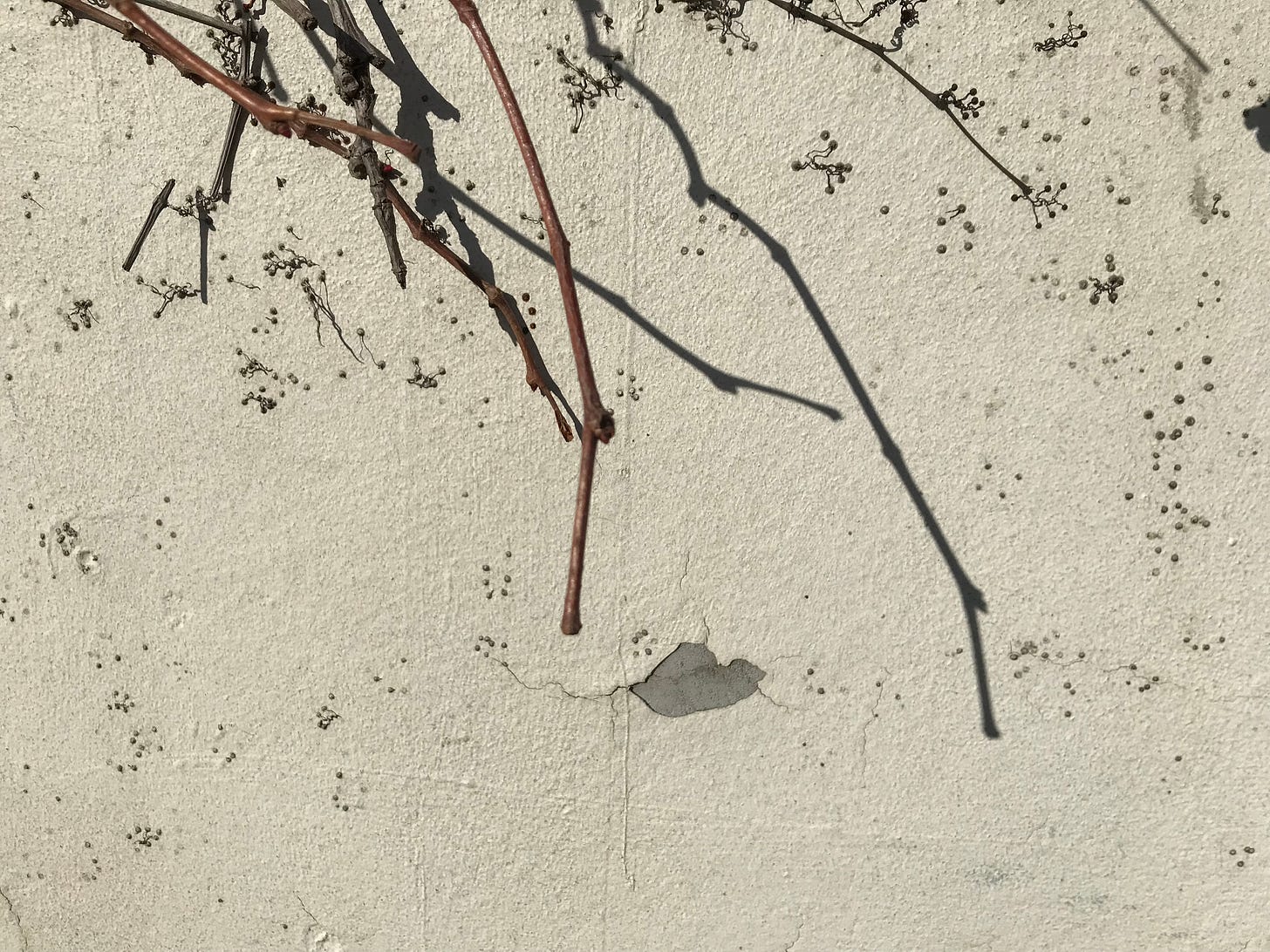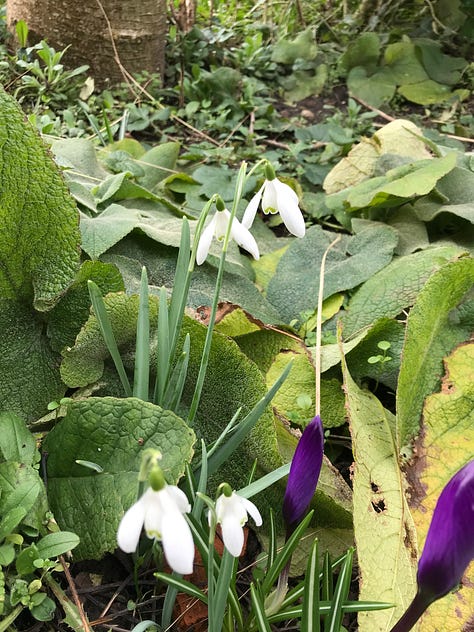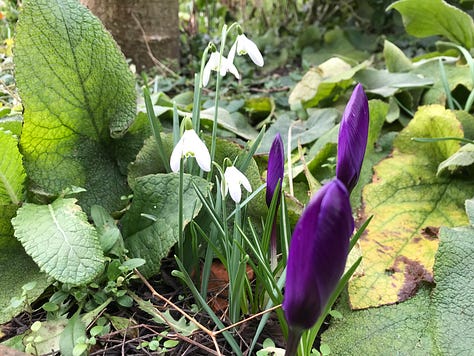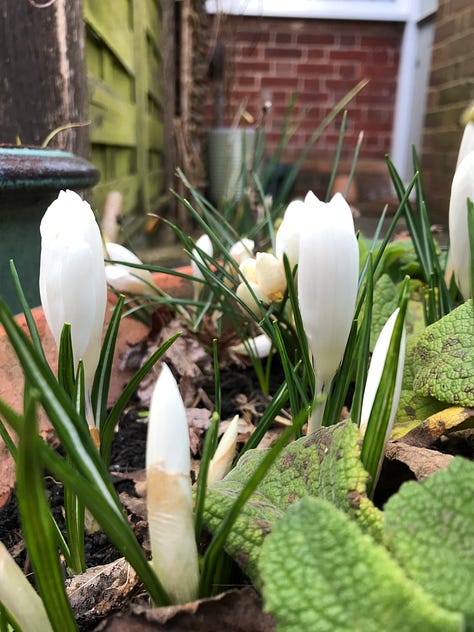While January dragged, February has passed me by so quickly I have not felt the plea for spring as I have seen in so many posts online this month. It’s only as the sun broke yesterday I registered that my body had simply accepted the grey wet coldness of winter. It felt as if this was a permanent state of being. If I have learned nothing else from living with chronic illness, it should be that nothing is a permanent state of being.
Yesterday the sun shone so brightly it cast shadows in its wake. I noticed the shadows as much as I noticed the warmth of the sun.

As I have so often felt in my body, it is only once I am reminded of what could be, that I yearn for what I have lost - some peculiar protective quality I have adopted perhaps. Only after it is safe to do so will I remember what has not been. I realise I have adopted a tendency to accept and adjust to a perpetual winter, forgetting that sometimes (often) things change. I forget time frames for this are slow and that new spring shoots can show themselves quickly once I’ve noticed them. It often feels that it is only in hindsight I am able to notice (or acknowledge) small shifts, fearful of being disappointed if I name something too soon. I’m reminded of how much I am in control of, and not in control, as I enjoy a new found parcel of energy and warmth in the sun.



The bluebells will soon be back in the woods and the snowdrops and crocuses are at last showing themselves - some much appreciated colour in the mud of the ground.
Earlier in the week I shared some of my pictures of last year’s bluebell woods at the Disability and Fairy Tales symposium - reading my short story ‘Can You Hear Me Sing?’. Thanks to all who attended and to Nicola Grove and Beth O’Brien for brilliantly organising and hosting such a wonderful event. If you missed it and want to catch up it’s now online - everything was recorded and there are copies of presentations available now at Disabled Tales (if you scroll to the bottom of the link there’s videos of each session and another link to the shared drive for accessible materials - scripts and PowerPoints etc). There’s also a link to the AHRC project that commissioned the piece I presented, with a recording and transcript of the work on this link.
Something else I’m starting this week (today) is the Active Rest Challenge. Run by Alexander Technique practitioners, it is aimed at helping people to learn to rest; to choose to take rest breaks (and not simply slump in a heap after you’ve over done it). It’s a way of learning to recognise what rest is. Active rest can be used to build rest breaks into the day’s routines. It’s a curious thing to try to describe if you haven’t encountered it before, but it can be a helpful way of working with pacing energy levels across the day too. To have regular times to unwind and ‘reset’ your body and mind, irrespective of whether or not you live with illness, can help with many different things. It’s a free ten day ‘challenge’ with a 20 minute guided session each day, all at different times - the online sessions are recorded if you can’t make them in person. I enjoyed the one they ran last year and if you are tempted to sign up too, feel free to take what is helpful and ignore anything that isn’t.
You might also have noticed, I’ve changed the colours and layout of the site, let me know what you think. I’ve tried to keep to the colours of the anthology and to make the text easy to read - a dark background also makes it easier on the eyes in looking at a screen.
Next week MOVING MOUNTAINS will be out in paperback! There’s still time to preorder and request it from your local library or bookseller if you haven’t yet got your copy (or recommend to a friend, neighbour, carer, or Dr).
Have a great weekend!




The Disabled Tales recordings from this week’s symposium I mentioned is now up and online to watch/listen back - it’s on the same link embedded in the post as well as here on Youtube:
https://www.youtube.com/@DisabledTales/featured